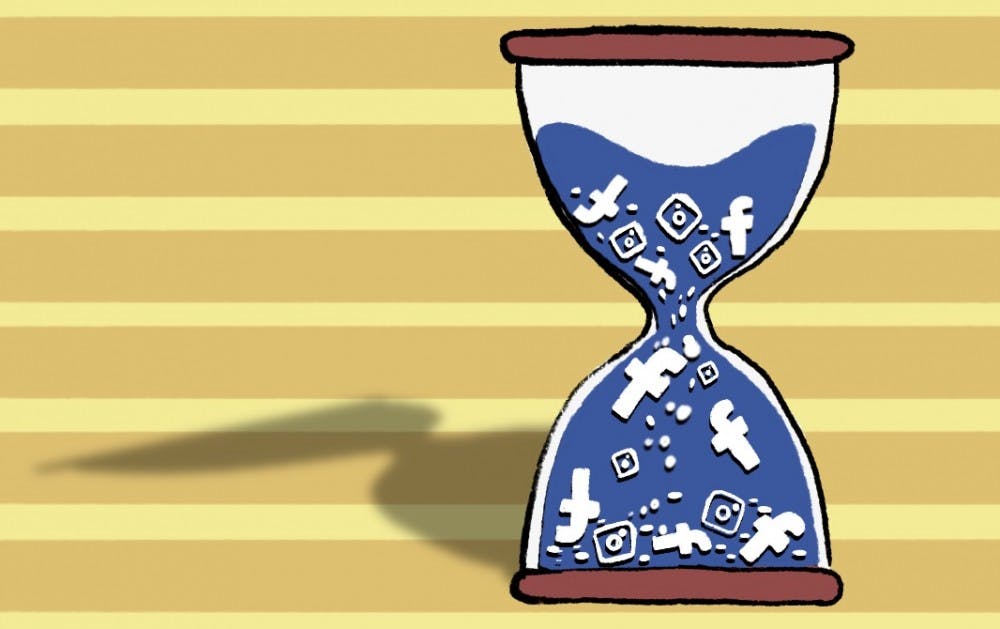A digital tool from Facebook and Instagram that hit the web in August could force social media's most devoted users to reckon with the amount of time they spend looking at a screen, University media experts say.
Earlier this month, Facebook and Instagram announced a virtual dashboard that will show users the time they’ve spent on the apps each day. The update will also allow users to mute push notifications and set daily time limits for each app.
The update, led by Instagram Product Management Director Ameet Ranadive, is the company’s way of acknowledging the negative mental health effects of social media dependency.
Joshua Brumett, a doctoral student studying communications and emerging media, said social media becomes harmful when people use it not for its utility but as a reflex.
“There is what we call instrumental use media, which is media use for a purpose, like to find out what’s going on in the world, and then there’s reflexive use of media, where you’re watching something just because it’s on.” Brumett said. “What happens that’s negative is when we start picking up our phone habitually and it just starts to be a reflex."
Brumett said that’s when people start seeing aspects of dependence, negative behaviors and negative consequences.
But social media can be used for good, or at least to improve productivity.
Perri Collins, a social media specialist at the W.P. Carey School of Business, said that students can use the technology for many reasons, whether that is completing an online course or using it to connect with cohorts.
When students track their usage, they can effectively balance their course-load and leisure-time on the web, she said.
“I think as more and more things divide our attention, being able to track where you spend that time online and using that time wisely is going to be more important going forward," Collins said.
Chris Cardona, social media specialist at Barrett, the Honors College, said these sort of updates could be eye-opening for ASU students who find most of their day spent on their phones.
“I don’t think we realize as a society how addicted we are to (social media), and I think this tool could be really powerful in showing you how much you are using a platform,” he said.
Cardona said that though companies like Facebook and Instagram, as well as marketers like himself, are beginning to promote good social media habits, the companies also want to increase usage of their services.
But ultimately he said there's a need to address the disconnect technology creates.
“Human interaction has really been cut because of technology and social media in the last 10 years," Cardona said. "It’s kind of scary where it might be headed, so I think for these companies to see the problem, maybe they’re a little late to the party, but at least they’re trying to be proactive.”
Reach the reporter at @kweinho2@asu.edu and follow @kevinweinhold on Twitter.
Like The State Press on Facebook and follow @statepress on Twitter.




